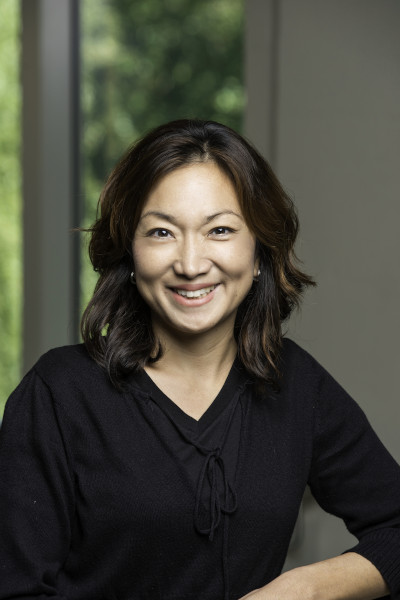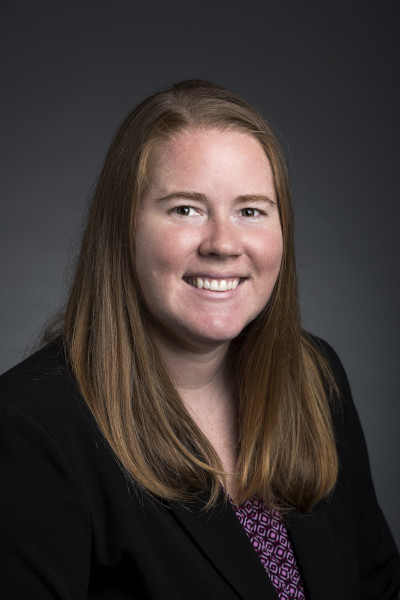School of Education Faculty Awarded NSF Grant for Project on Enhancing Equity in Mathematics Education Through Technology and Data Literacy
September 20, 2024

Jennifer Suh
Jennifer Suh, professor in the Mathematics Specialist Leadership and Elementary Education PK-6 programs within the School of Education and the faculty representative for the Mathematics Education Leadership specialization for the PhD in Education program at George Mason University, was awarded a National Science Foundation (NSF) grant in support of her project titled “Framework for Integrating Technology for Equity (FIT for Equity)” for which she is Principal Investigator. Working with Suh on this initiative as Co-Principal Investigator is Theresa Wills, associate professor in George Mason’s Mathematics Specialist Leadership, Secondary Education 6-12, and Elementary Education PK-6 programs.
The FIT for Equity initiative is an ambitious project aimed at transforming the use of technology in mathematics education in K-12 classrooms to prioritize equity. The focus of this endeavor is to strengthen teachers’ abilities to use technology in transformative ways in advancing equity and in enhancing data literacy in mathematics education. By developing a collection of data literacy lessons that incorporate transformative technologies, Suh and her research team will address community-based challenges and humanize mathematics through culturally relevant tasks.

Theresa Wills
This initiative builds upon the ongoing research that Suh and Wills have conducted in increasing teacher awareness of the importance of equity in education and their work in developing the tools and resources that enable teachers to bring equity to the forefront using technology in the mathematics classroom. “I am thrilled about collaborating with Dr. Theresa Wills because this project aligns perfectly with our passion for educational technology, equitable instruction, and curriculum development. The FIT for Equity project expands on the Equity-Centered Transformative Technology (EqT-Tech) framework created by our team at George Mason,” Suh stated. “It aims to enhance equity in mathematics classrooms by integrating culturally relevant math teaching principles and emphasizing data literacy, which is a key focus at both state and national levels in math education.” Through the EqT-Tech framework, Suh and her colleagues previously developed a lesson analysis tool to help teachers choose technology in judicious ways to advance equity in their math classroom. This work resulted in the National Technology Leadership Initiative Fellowship in Mathematics award being presented to Suh and her EqT-Tech colleagues.
As Co-Principal Investigator in the FIT for Equity project and as a member of the EqT-Tech team, Wills has engaged in extensive research on the use of technology in enhancing equity and data literacy in mathematics education. Wills expressed their passion about this topic as they commented, “I am excited to work with Dr. Jennifer Suh. We’ve collaborated on a variety of projects that always revolve around supporting teachers as they embark on new curriculum journeys. In the FIT for Equity project, we will get to work in classrooms to understand how teachers consider equitable implementation of technology into their inquiry-based data literacy lessons.”
The FIT for Equity initiative will be implemented through a series of phases, starting with an innovative professional development model called “Inclusive Lesson Study,” which brings together teachers, students, and community members to co-create lessons. The project will be piloted in four geographically diverse locations in Virginia, Ohio, Tennessee, and Michigan, each with unique community needs. In addition to George Mason University, three other universities will be collaborating on this project including Wayne State University (Detroit, Michigan), Middle Tennessee State University (Murfreesboro, Tennessee), and Bowling Green State University (Bowling Green, Ohio). Each university is in a diverse school district. Researchers from each of these universities will work with teachers in their respective school districts to provide them with specialized training on how to integrate these new methods into their classrooms. The effectiveness of the lessons will be evaluated through continuous feedback and refinement.
Implementation of this project will involve an exploration of how emerging technologies, such as dynamic graphical software, adaptive learning and collaborative platforms, Artificial Intelligence (AI), Geographical Information Systems (GIS), Virtual Reality (VR), and other technologies can provide access to inquiry-based learning, and foster mathematical identity and agency by enabling students to author and share their work. The project will examine how formative assessment tools can assist in tailoring instruction to individual student needs. In addition, the initiative will illustrate ways in which collaborative platforms can enhance collective learning, and how technology can amplify mathematical thinking processes. The research team will also look at how data tools and GIS can provide insights into lessons around social justice issues, thus making learning more inclusive and relevant.
“By participating in this initiative,” Suh commented, “we hope to contribute to the development of innovative teaching strategies that can be scaled and adapted to diverse educational settings, ultimately making a significant impact on mathematics education.”
Suh emphasized that this project is crucial for K-12 mathematics education, especially in the context of equity. She observed, “Traditional teaching methods often fail to engage students or address their individual learning needs. FIT for Equity aims to bridge this gap by leveraging technology and interactive learning to make math more accessible and relevant. This project emphasizes the development of critical thinking and problem-solving skills, which are essential for students’ future academic and career success. By focusing on data literacy, the project also prepares students for a data-driven world, equipping them with the skills needed to navigate and analyze complex information.”
Suh and Wills believe that the FIT for Equity project promises to bring a much-needed change to K-12 mathematics education, a change that is timely given the new math Standards of Learning (SOL) focused on Data Literacy in Virginia. They emphasize that by combining modern technology with effective teaching practices, it is possible to create a dynamic and engaging learning experience that will inspire a new generation of mathematicians and problem solvers.
Please join us in congratulating Jennifer Suh on being awarded a grant from the National Science Foundation in support of the FIT for Equity project and for the important research that she and Theresa Wills are doing in advancing equity using emerging technologies and teaching practices that emphasize data literacy in mathematics education.
